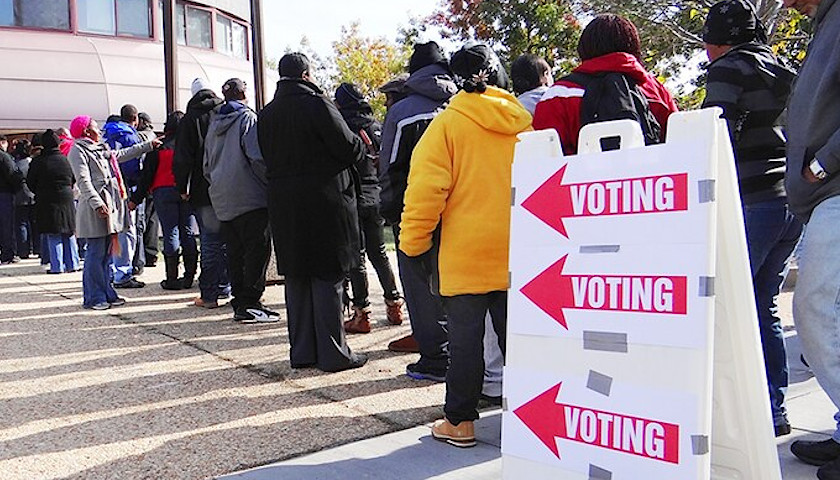by Martha Boneta
They’re lying about the new voting legislation in Georgia. The only question is whether they will get away with it.
For now, the center is holding. Gov. Brian Kemp, a Republican, is proud of the work the legislature did to address corruption complaints from both sides. He is willing to tolerate the loss of the MLB All-Star Game and baseball’s amateur draft and has pushed back on remarks by the chairman of Coca-Cola and of Merck and others.
But what ought to alarm Americans about this is the willingness of the left to be utterly dishonest about the law’s contents. From President Joe Biden to the media to lower-level politicians such as Stacey Abrams, the law’s opponents have shown a disturbing willingness to distort or outright misrepresent its provisions.
Biden claimed the law called for the polls to close in Georgia on Election Day at 5 p.m. “Among the outrageous parts of this new state law, it ends voting hours early so working people can’t cast their vote after their shift is over,” the president said.
Only it doesn’t. Election Day voting in Georgia remains 7 a.m. to 7 p.m., and anyone in line at 7 p.m. is allowed to vote. What changed was the state now requires counties to be open from at least 9 a.m. to 5 p.m. during the early voting period and provided the option of being open 7 a.m. to 7 p.m. Previously, the law said they should be open business hours, which meant in some counties where poll workers are part-timers early voting was available only from 10 to 4 or even fewer hours.
The provision Biden called “among the outrageous parts of this new state law” expanded the hours Georgians could participate in early voting.
This was not a slip of the lip by the president. He made these claims during an interview with ESPN the day before the baseball season started and in a presidential statement a day later. He earned four Pinocchios from the Washington Post for these remarks and was chastised by even CNN’s fact checker.
His press secretary was no better. Jen Psaki told reporters the new rules “doesn’t expand [hours for early voting] and makes [it] shorter” and that “the fact checkers will also tell you that this bill does not make it easier for people across the state of Georgia to vote.”
Only it does. The legislation adds days for early voting, including a guaranteed extra Saturday and the possibility of another Sunday – both times when leftist groups get their voters to the polls.
Critics also took aim at a provision that prevented activists from distributing food and water to people in line to vote. Laws preventing electioneering near voting sites are common, and the provision in Georgia responds to complaints that the food and water provided went beyond simple snacks to meal tickets and other items that could be viewed as inducements.
Another required that drop boxes for early votes be kept inside voting centers so they could be monitored. Drop boxes were a new feature in 2020, and Republicans still say chain-of-custody issues from last November’s election have yet to be addressed.
Still another requires that IDs be presented with applications for absentee votes rather than the signature matches previously used. The signature matches required election officials to make subjective judgments, and almost everyone has at least one of the IDs the law allows to be used.
But this is not an argument about the reasonableness of the provisions of the law. The legislature is controlled by Republicans and the statehouse by a Republican governor, but the law was refined from 30 proposals to one that addressed the most outstanding problems in the most reasonable, transparent way possible.
The argument is whether any reform package enacted by any Republican legislative body can be considered legitimate in today’s climate when the other side, led by the president, will falsely – and there really is no other word – label whatever is passed “racist” and “harmful to people of color.”
They seem not even to have to prove their point to win the argument. If “activists say” the law is racist, it is racist. Thus did CNN write that “several provisions of the new law that voting rights activists argue could harm Black Georgians and other voters of color in the state.”
But activists say what they say because they have an angle. That’s what activists do sometimes. But I was there. I saw what was passed and how it was passed. This legislation doesn’t make it harder for Georgians to vote. It just makes it harder for candidates and parties to cheat.
– – –
Martha Boneta is an American policy advisor, commentator, and farmer. Martha is also the President of Vote America First.








